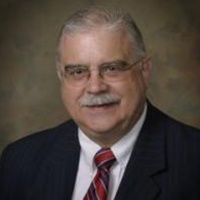Waynesburg Estate Lawyer, Ohio
Sponsored Law Firm
-
 x
x

Click For More Info:
-
R. Lasko Co. LPA, LLC
1406 W 6th St STE 200, Cleveland, OH 44113» view mapBusiness, Estate, Real Estate, Employment Competent Legal Representation
Let R. Lasko Co. LPA, LLC handle all your legal needs today!
216-574-2602
DOUGLAS D JONES
✓ VERIFIEDEstate, Trusts, Family Law, Bankruptcy, Real Estate
Affordable Quality Legal Services With A Caring Approach Toward A Winning Strategy
Douglas Jones is a Probate Lawyer proudly serving Canton, Ohio and the neighboring communities.
Alfred Dean Mccallin
Banking & Finance, Estate, Corporate, Estate Planning
Status: In Good Standing Licensed: 42 Years
Beverly Paulette Proctor-Donald
Accident & Injury, Divorce & Family Law, Estate, Federal Appellate Practice
Status: In Good Standing Licensed: 27 Years
Bradley R. Ryan
International Tax, Commercial Real Estate, International, Estate Planning
Status: In Good Standing Licensed: 9 Years
Brant Allan Luther
Government, Estate, Divorce & Family Law
Status: In Good Standing Licensed: 22 Years
Catherine Ann Pastore
Dispute Resolution, Estate Planning, Estate, Elder Law
Status: In Good Standing
Cathy Pastore
Elder Law, Estate Planning, Trusts, Litigation
Status: In Good Standing Licensed: 37 Years
Charles Jason Deeds
Estate Planning, Employee Rights, Family Law, Collection
Status: In Good Standing Licensed: 36 Years
 Ronald Lasko Cleveland, OH
Ronald Lasko Cleveland, OH AboutR. Lasko Co. LPA, LLC
AboutR. Lasko Co. LPA, LLC

